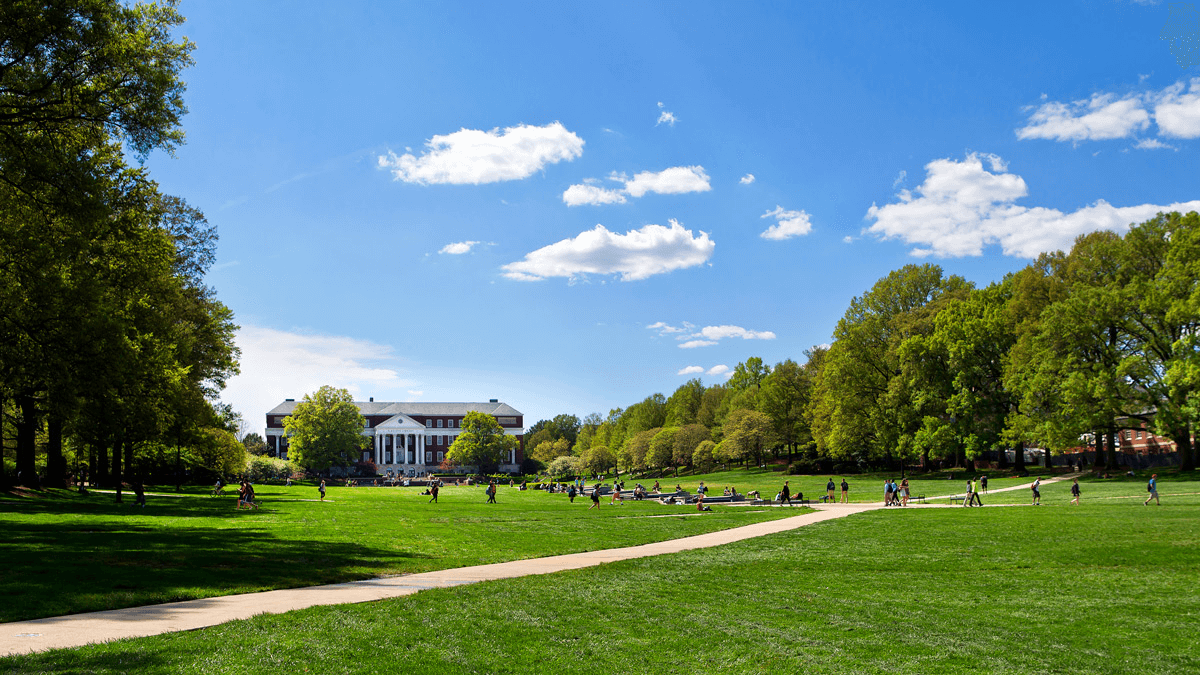News
Why This Assistant Director has Stayed With Scholars for 20 Years
My first gig at the University of Maryland was an assistantship to Dr. Thomas Holtz, who at the time was creating the Earth, Life and Time program—the precursor to College Park Scholars’ current Science and Global Change (SGC) program. In the 19 years since, I’ve taken on many other responsibilities, including the director of undergraduate studies for the Department of Geology. But my job with Scholars remains by far my favorite. Upon reflection, the reasons come down to the intellectual freedom I get to craft a genuinely interdisciplinary curriculum and the diversity of impressive students Scholars has brought into my life.
A Day in the Life of a Commuter Student
Marlen Cruz has taken on many roles in her scant 20-some years. First-generation American. First-generation college student. And: a commuter student. “My parents live five minutes away from campus. They were like, ‘There’s no way you’re living on campus,’” she relays, laughing. A public health science major who was in the Media, Self and Society Scholars program, Cruz says she was unhappy at first to not live on campus. “But then I realized, I liked going home and seeing my parents,” she says. The oldest of three, she is also close to her siblings and says commuting from home allowed her to keep tabs on them.
‘All-in’ Public Leadership Alum Offers Lessons for Other Scholars
Katie Bemb hadn’t intended on becoming a Terp. As a high school senior, she applied to the University of Maryland (UMD) regular decision but was strongly considering another university in the Washington, DC, metro area. That inclination began to change after her best friend—who had applied early action to UMD—got accepted into College Park Scholars. Students who apply early action are automatically considered for the living–learning program. “Once my friend told me about Scholars, I started to look more into it,” Bemb says. “And once I read more about the different Scholars programs, I started to get excited about UMD. When I read the description for Public Leadership Scholars, I felt like I was meant to be in the program.”
From Softball to Swab Kits: SDU Supports Leukemia and Lymphoma Society for 5th Year
More than 20 years ago, a University of Maryland sophomore created a Scholars-wide charity softball tournament for his Scholars practicum project. His project has since grown and evolved into the Scholars Cup, a year-round fundraising competition for charity. Every fall, each Scholars program selects a charity based on individual program theme or student interest. It then fundraises for that organization for the remainder of the year. Students can earn points through service projects and community events, which builds community and incentivizes involvement throughout the year. These efforts culminate with the spring charity softball—now kickball—tournament.
On Global Handwashing Day, GPH Students, Preschoolers Discuss ‘the Best Vaccine’
Washing your hands is serious business—something that the students at the University of Maryland’s Center for Young Children are learning hands-on. “Our kids wash their hands all the time,” says Director Mona Leigh Guha, of the center’s 3- to 6-year-old students. The state requires certain handwashing protocols in licensed preschools, and frankly, it’s good practice. Handwashing with soap is widely recognized as one of the easiest and most effective ways of preventing disease. “Handwashing is the best vaccine,” observes Elisabeth Maring, director of the Global Public Health (GPH) Scholars program. GPH is sponsored by the School of Public Health.
Media Scholar, and TerpsVote Rep, Urges Students to Use Their Voice and Vote
Throughout my childhood, I remember waiting in long lines in the cold with my parents at my local middle school on Election Day. My parents are immigrants; my dad is from El Salvador, and my mom is from the Ukraine. The right to vote wasn’t really something that was represented well in either of their countries. So when they became U.S. citizens, being able to vote was really important to them. For them, it was meaningful to be able to vote every Election Day and to know that every vote counted.
